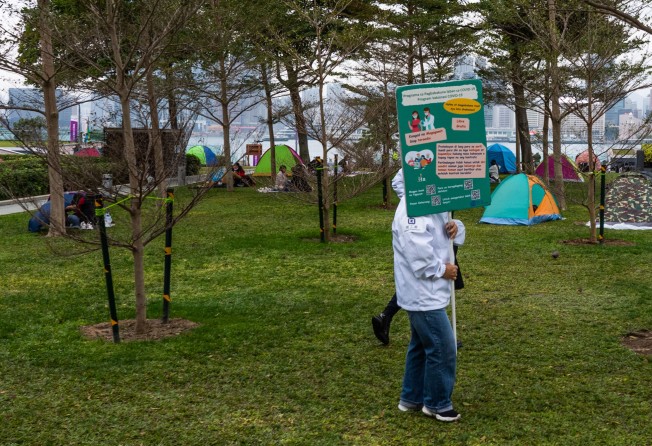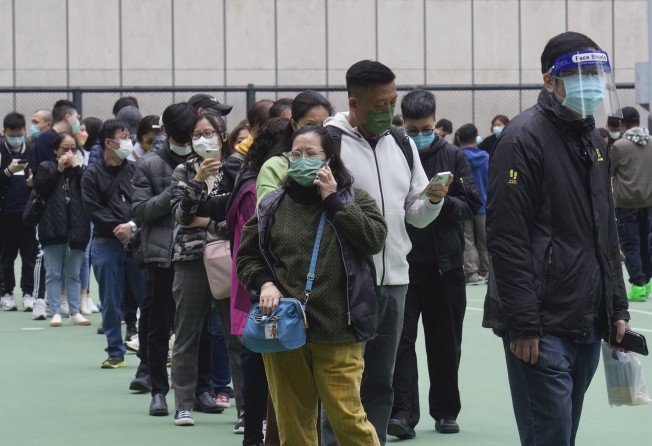
Persuasion the lasting answer to vaccine resistance
- Hong Kong still battles obstacles to vaccine take-up. Access to clear, verified information that clarifies misconceptions and perceptions is pivotal to changing that
- The government needs to come up with a better strategy for distributing easily digestible quality information

Vaccination may be a global response to the Covid-19 pandemic, but Hong Kong continues to battle obstacles to take-up, such as misinformation and anti-vaccination sentiment.
As a result, the city has a single-jab vaccination rate that has only just passed 80 per cent, with resistance high among the elderly and the young. The obstacle of personal choice cannot be overcome with compulsion, only countered with tireless persuasion and disincentives like exclusion of the unvaccinated from specified venues or activities.
Ultimately, the lasting answer is persuasion. Access to clear, verified information that clarifies misconceptions and perceptions is pivotal.
Persuasion must first take into account concerns behind vaccine resistance.

Surely one of the most daunting examples is to be found in the results of a survey of more than 11,000 parents of kindergarten-to-primary schoolchildren by the Education University of Hong Kong. It found that only 10 per cent are willing to let their children have a vaccine, and 85 per cent are concerned about side effects.
Presumably many of these parents have had at least one jab. Did they have side effects against which they wish to protect children? That said, anyone is entitled to cite statistically insignificant risks.
Another finding of the survey is not so easily assimilated, given the strong views of parents and others against prolonged disruption of normal schooling.
Even if vaccination would enable resumption of classes, 79 per cent of parents were still opposed. Clearly they have reservations that ought to be identified and addressed.
Any vaccine has possible side effects. Exceptional incidence among young people is not a concern so far. Weighing all the known risks, vaccination remains widely supported as the safest path.
This survey reminds us of the importance of a grasp of basic facts and information rooted in science and medicine. In the age of the internet a pandemic can spark information overload.
People can easily be misled by fragmented and piecemeal responses, and prone to misconception. To achieve greater clarity, the government should as far as possible avoid knee-jerk reactions to developments in contagion, and try to come up with a better strategy for distributing simple, easily digestible, verified and quality information.